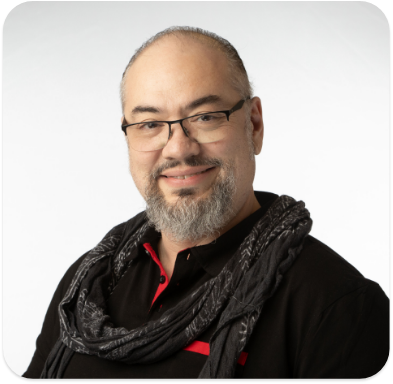Humanistic Psychology at Saybrook
Grounded in our institution’s humanistic approach, Saybrook’s Humanistic Psychology programs strive to advance our understanding of human experience and contribute to positive social transformation. Designed for students who wish to drive positive change in a wide range of individuals, organizations, and communities, Humanistic Psychology programs at Saybrook explore complementary approaches—including meditation, nutrition, energy medicine, biofeedback, and spirituality—alongside more traditional forms of care.
Core Areas of Focus Include:
- Theoretical foundations of psychology, including humanistic, existential, and transpersonal perspectives
- Research methods and evidence-based practices to inform innovative solutions
- The integration of cultural competency and ethical decision-making in diverse settings
Whether you seek to deepen your understanding of human behavior or contribute to advancements in psychological research and practice, Saybrook’s Humanistic Psychology programs provide a comprehensive pathway to achieving your goals.
Connect with Us
Humanistic Psychology Programs
Our Humanistic Psychology programs blend innovative approaches with traditional frameworks, combining experiential learning and theory to prepare you for leadership in professional psychology.
Ph.D. Programs
Ph.D. in Psychology: Build a foundation in humanistic and transpersonal psychology to drive change in health care, education, nonprofits, and beyond.
Ph.D. in Psychology: Consciousness, Spirituality, and Integrative Health Specialization: Study transpersonal psychology and practices to understand and support personal and spiritual growth.
Ph.D. in Psychology: Creativity, Innovation, and Leadership Specialization: Conduct research on creativity and innovation to prepare for leadership roles that advance well-being and progress.
Ph.D. in Psychology: Existential and Humanistic Psychology Specialization: Examine what it means to be fully human through philosophy, ethics, and creativity in this interdisciplinary program.
Ph.D. in Psychology: Psychophysiology Specialization: Master techniques such as biofeedback and hypnosis to optimize behaviors and teach others to enhance well-being.
Ph.D. in Psychology: Specialization in Teaching and Advanced Research (STAR): Prepare for a career in higher education by mastering key skills in teaching and mentorship, curriculum design, and advanced research, while building a scholarly portfolio that sets you apart in academia.
Master's Programs
M.A. in Psychology: Gain psychological research and analysis skills, opening doors to careers in research, teaching, and consulting.
M.A. in Psychology: Consciousness, Spirituality, and Integrative Health Specialization: Study individual and cultural evolution through integrative perspectives on consciousness, spirituality, and healing.
M.A. in Psychology: Creativity, Innovation, and Leadership Specialization: Learn to navigate challenges through creativity and innovation, leading change with a humanistic focus.
M.A. in Psychology: Existential and Humanistic Psychology Specialization: Explore how humanity discovers meaning and wisdom by integrating psychology with philosophy, spirituality, and ethics.
Saybrook Learning Model
Online learning fueled by community and connection defines the Saybrook experience. As pioneers of the virtual classroom, we understand there is no substitute for the joy, belonging, and exploration that occurs when we collaborate as a community. The University Learning Experiences were designed to foster this collaboration and connection regularly.
- Residential Learning Experiences (RLE)
At these in-person intensives, clinical program students put theory into practice, hone clinical skills, gain professional guidance from experienced faculty, and acquire the residential hours required for clinical licensure. - Virtual Learning Experience (VLE)
Explore, collaborate, and deepen your engagement with your learning community. These online, synchronous events foster rich interactions beyond the classroom with your classmates and faculty. - Community Learning Experience (CLE)
Form meaningful connections, explore new ideas and perspectives, and immerse yourself in a transformative experience during this in-person, five-day event with the entire Saybrook University community.

